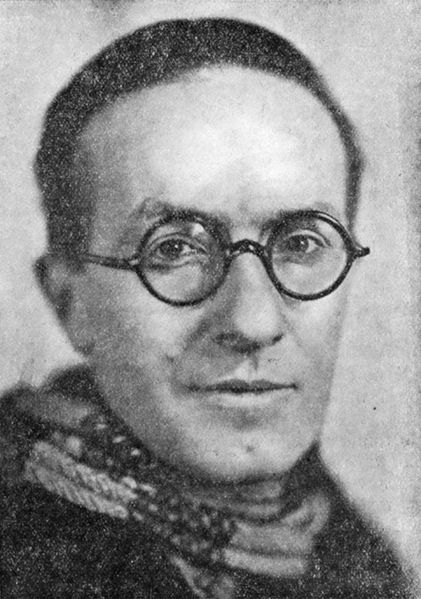<Back to Index>
- Antiquarian Martin Folkes, 1690
- Dramatist Hippolyte Jean Giraudoux, 1882
- Reich Minister of Public Enlightenment and Propaganda Paul Joseph Goebbels, 1897
PAGE SPONSOR

Hippolyte Jean Giraudoux (October 29, 1882 – January 31, 1944) was a French novelist, essayist, diplomat and playwright. He is considered among the most important French dramatists of the period between World War I and World War II. His work is noted for its stylistic elegance and poetic fantasy. Giraudoux's dominant theme is the relationship between man and woman — or in some cases, between man and some unattainable ideal.
Giraudoux was born in Bellac, Haute-Vienne; his father, Léger Giraudoux, worked for the Ministry of Transport. Giraudoux studied at the Lycée Lakanal in Paris and, upon graduation, traveled extensively in Europe. After his return to France in 1910, Giraudoux accepted a position with the Ministry of Foreign Affairs. With the outbreak of World War I, he served with honour and in 1915 became the first writer ever to be awarded the wartime Legion of Honour.
He married in 1918 and in the subsequent inter-war period produced the majority of his writing. He first achieved literary success through his novels, notably Siegfried et le Limousin (1922) and Eglantine (1927), but it is his plays that gained him international renown. An ongoing collaboration with actor and theater director Louis Jouvet, beginning in 1928 with Jouvet's radical streamlining of Siegfried for the stage, stimulated his writing.
He is buried in the Cimetière de Passy in Paris.
Giraudoux served as a juror with Florence Meyer Blumenthal in awarding the Prix Blumenthal, a grant given between 1919 - 1954 to painters, sculptors, decorators, engravers, writers, and musicians.